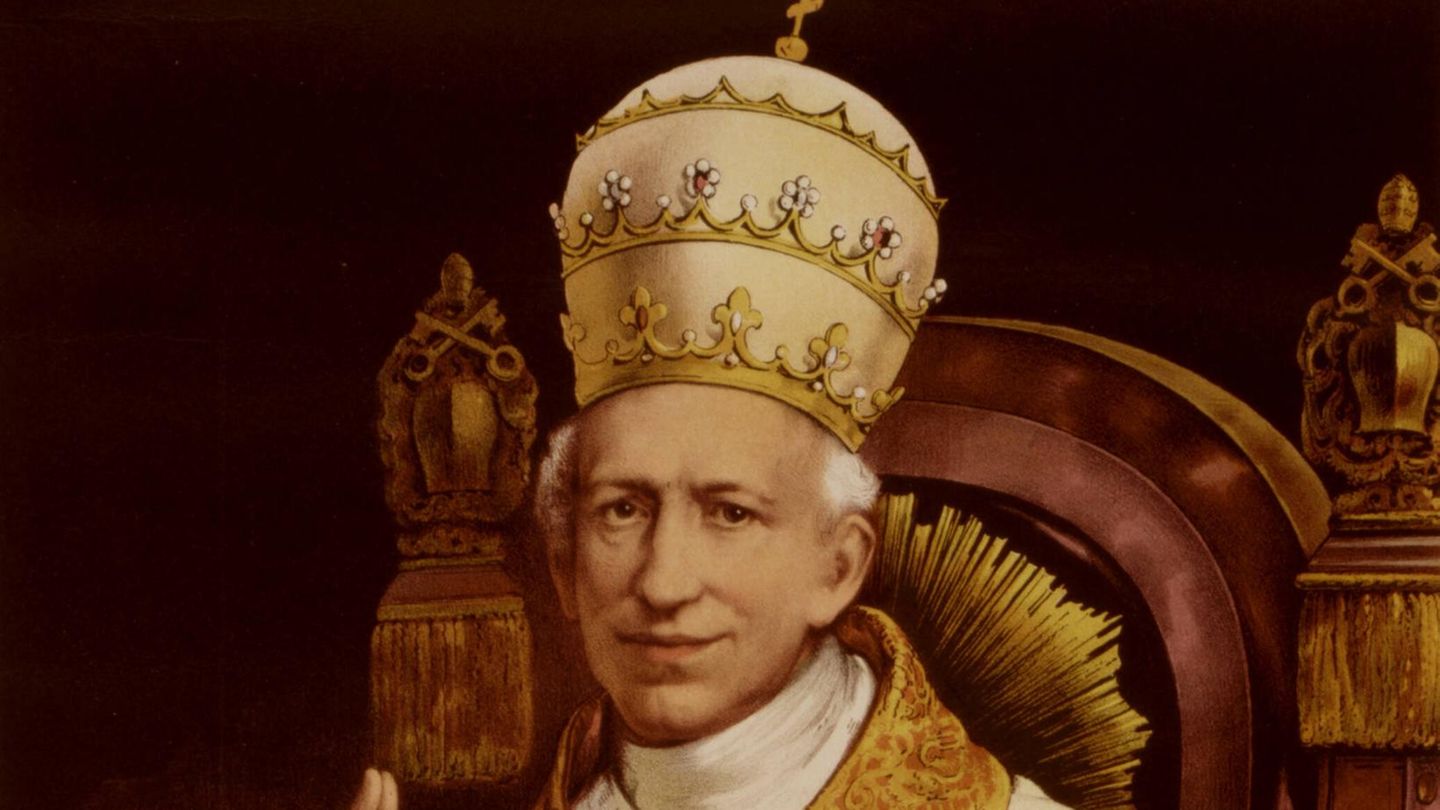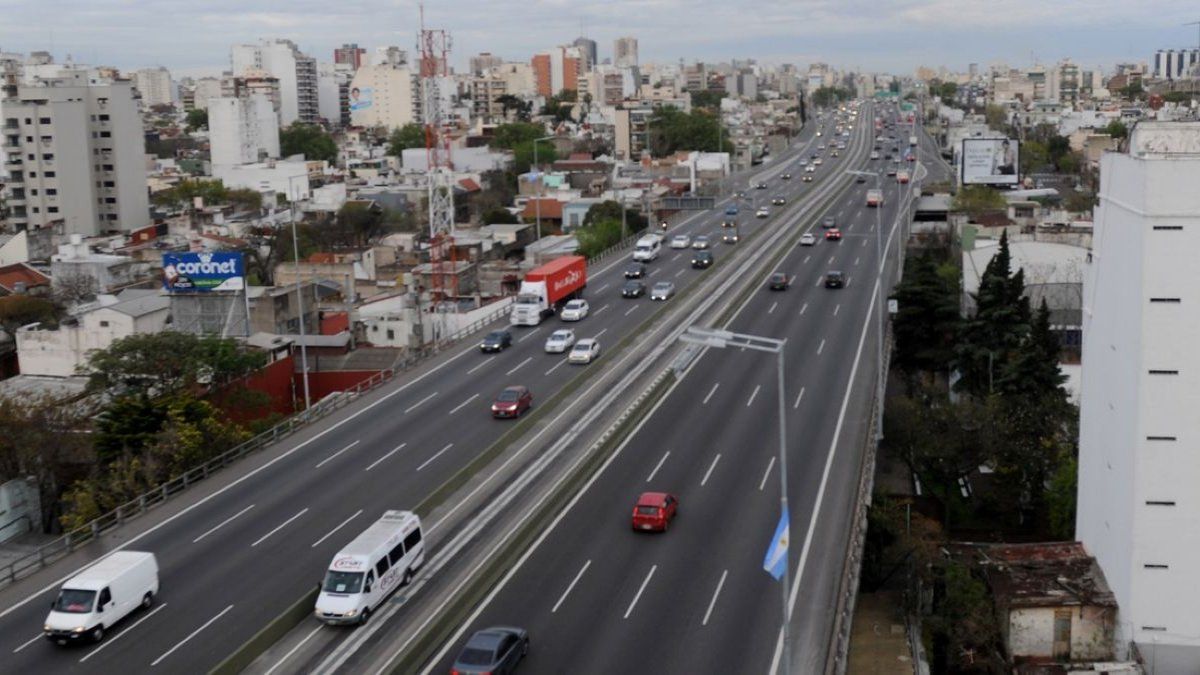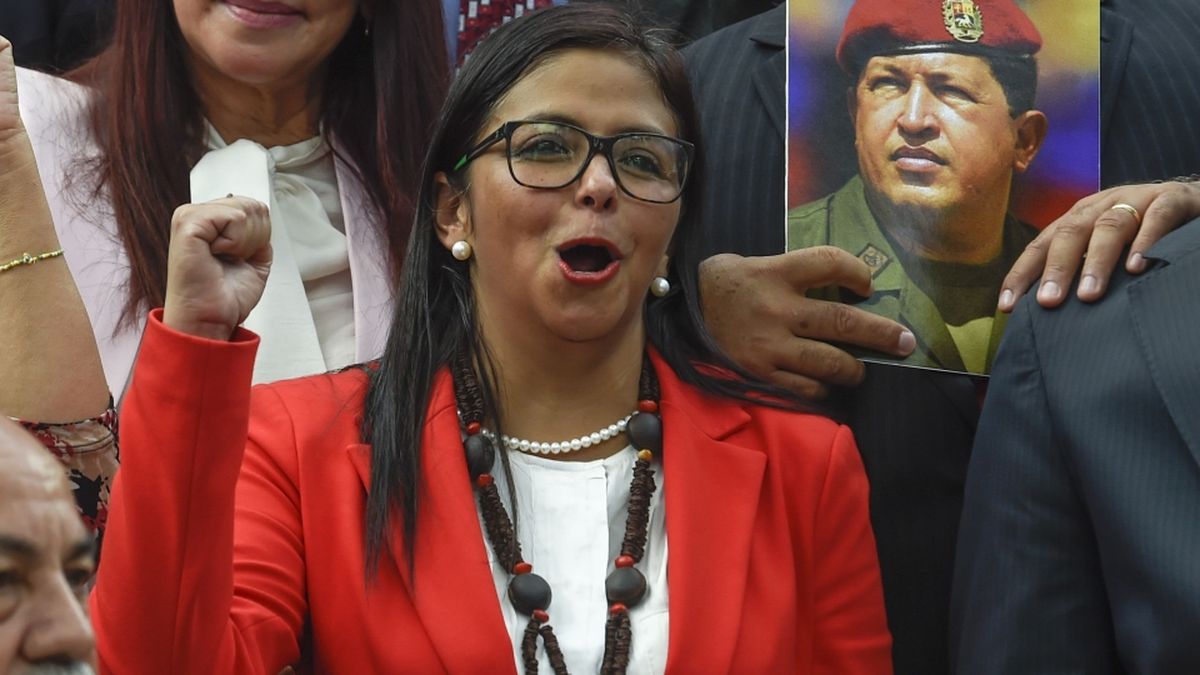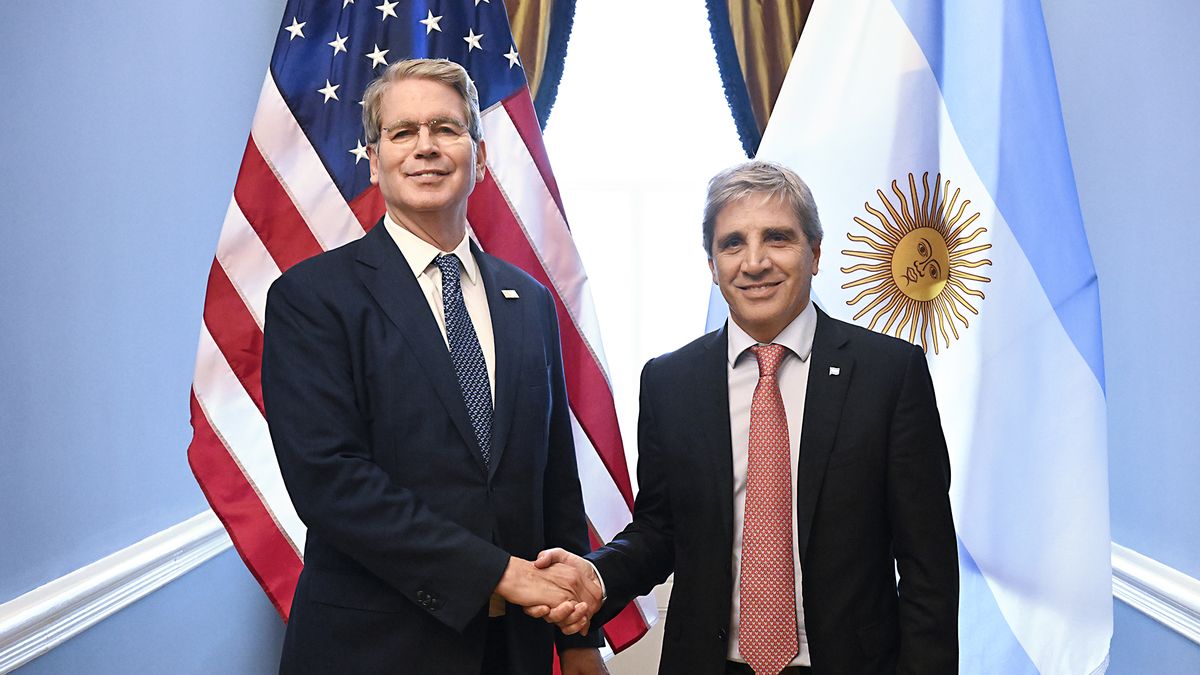Chief church
The new Pontifex relies on him: Who was the “workers’ pope” Leo XIII.
Copy the current link
Add to the memorial list
As Leo XIV, the new Pope took office. His name lived more than a century ago and wrote history – in many ways.
It was shortly after 6 p.m. on Thursday when white smoke rose from the chimney of the Sistine chapel. Habemus papam! A new Pope was elected. Thousands of believers on St. Peter’s Square fell into their arms. About an hour later, the new Pontifex-the American Robert Francis Prevost-showed the world on the balcony of St. Peter’s Cathedral, announced with its self-chosen papal name: Leo XIV.
It is a name that not many would have expected, but it seems understandable at second glance. Because Prevost refers to his predecessor Leo XIII, who lived more than a century ago and to which there is more than just a parallel.
Leo XIII.: Highly gifted child with a steep career in the Catholic Church
Leo XIII. was born as Vincenzo Gioacchino Pecci in 1810 in Rome occupied by France. His family belonged to the low country nobility, several family members were already in the service of the church. The young Pecci is considered to be gifted early on, goes to school at the Jesuit college in the Central Italian Viterbo, then studies theology at the renowned Collegium Romanum in Rome and completes an apprenticeship for papal administrative and diplomat service. He then put on a steep career: in 1835 he did his doctorate to the doctor of both rights – the conclusion of state and church law. Just two years later, he is awarded the ordination.
But Pecci is probably an uncomfortable contemporary. In 1843 he was the incumbent Pope Gregor XVI. appointed Archbishop and sent to Belgium as Nuntius, where he will be recalled after a few months at the request of the king. His career took him to Perugia in 1846, where he resides as a bishop for a few years. 1853 – at the age of only 43 – he became Pope Pius IX. appointed cardinal.
From conservative hardliner to progressive revolutionary
At that time, his worldview begins to change. Initially, Pecci presents itself as a hardliner. He represents an arch -conservative and anti -science line. So that the following generations do it the same way, he is committed to reforming the theology studies, which is intended to strengthen traditions and conservative values. He will lead bishops who position themselves against more progressive Italian state church. The Roman Catholic Church is the focus of world history for him.
However, within several years, the arch -conservative Pecci becomes – relatively – progressive revolutionary: it opens for modern culture and technology, becomes something like the leader of the moderate representatives of the Vatican. Pope Pius IX dies in the middle of this development. As a cardinal, Pecci runs the business during the Sedis vacancy and is then voted the new Pope after a two -day conclave.
Cardinal Robert Francis Prevost becomes Leo XIV – pictures of his career
As the new pope called Leo XIV, Robert Francis Prevost appears on the balcony of St. Peter’s Basilica for the first time
© Domenico Stinellis / AP
More
Open the image subtitle
Back
Further
It should become a pontificate full of changes: With his choice of name, he shows his veneration for Pope Leo XII, who lived almost 50 years before him, and in whose tradition he sees himself. His biggest project is said to be what Leo XII. Could never complete: The papacy should receive a new position on the world stage. And even if the times are completely different, both popes see the church in medieval tradition as the top authority – still above the sovereignty of the states. According to the motto: What does it care for a Pope who is emperor or king under him?
But Leo XIII. Must quickly realize that this outdated view is in a strong conflict with modern society. Especially because the importance of the Vatican has dropped massively. In 1870, eight years before he took office, the church state lost its territory to the Kingdom of Italy. Only a kind of right of residence remained in the Vatican for church servants. The Pontifex is a king without the kingdom.
The Pope positions the Vatican as a non -partisan authority
So Leo XIII. A virtue out of this need: if the church cannot rule over all, then the Vatican should establish itself as an instance, the parallel to royal and emperor rich, with the Pope in an intermediary, independent and non-partisan.
This positioning is considered the birth of modern papacy – and has not changed to this day. But the Pope obviously has its problems with the new role. In particular with the Italian state, he comes into conflict several times, for example because he prohibits Catholics to participate in democratic parliaments.
Ultimately, it is his call for peace and social justice, Leo XIII. moves in an ever more progressive direction. The Vatican still relies on his encyclical – an open letter – with the title “Rerum Novarum” (Spirit of Renewal). In it, the Pope denounces the exploitation of workers in the industrial revolution and its impairing. Scripture is still an important guide in relation to human and employee rights. According to the Pope, occupational safety is a state task. The letter is the birth of church social teaching. In Germany in particular, the encyclical to this day has a significant impact on the idea of social policy. Pope Leo XIII. it brings the call of the “workers’ pope”.
These popes had a particularly long or short term
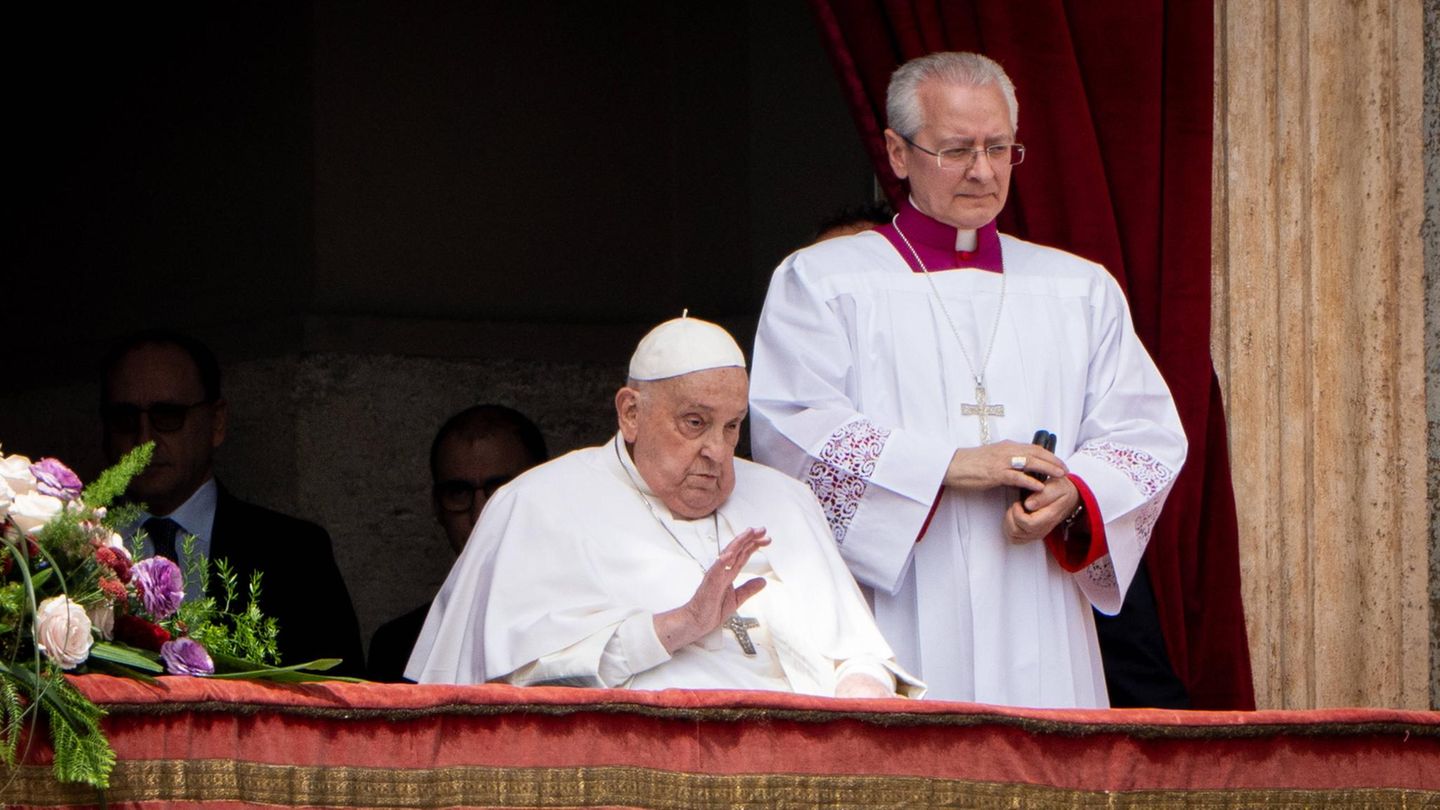
Pope Francis’ term of office ends in midfield
Pope Francis spoke the blessing urbi et orbi on Easter Sunday. The 88-year-old died in the Vatican just a few hours later. He was in office for twelve years and a month. A relatively long term for a Pontifex. In a historical comparison, however, it does not even end up in the top 50 of the longest pontificates
© avalon.red / imago images
More
Open the image subtitle
Back
Further
In addition to his social commitment, Leo XIII. for uprisings and conflicts. In another encyclical, he recognized the third French republic in 1892 and leaves French Catholics the choice of which state form they want to support. The reason for this is that, regardless of the political system, religion alone can lead to the peace of a nation. This letter is also considered pioneering for the development of democracies in Europe.
The first media pontiff
For years, Leo XIII manages to influence the politics of different countries. This progressive approach is also clear by the fact that he is the first Pope to internalize the dynamics of media. On the top topics for him, he keeps sending encyclists. In it, for example, he criticizes Freemasonry, condemns slavery in the mission areas or speaks out for the nature of human freedom. When the Pope writes, the world reads his letters.
But the Pontifex also recognizes the effect of the newly emerging mass media. In the 1880s and 1890s, he was not only the first Pope whose voice is recorded. He is also the first Pontifex – and the oldest person to date – of which film recordings are made. Likewise, he is the first head of the church to have given a newspaper interview in history.
At this point our editorial team has integrated the content of YouTube.
Due to their data protection settings, this content was not invited to protect their privacy.
And even with his death, Leo XIII goes. Still in the story, in two ways: he is the Pope with the third longest reign (1878 to 1903), and when he dies, he is the oldest pontiff of all time at the age of 93. Only the German Pope Benedict XVI. Getting even older, but has already taken office at the age of 86.
The newly elected Pope Leo XIV. Even during his first speech it became clear that he was in the tradition of his direct predecessor Franziskus and Leo XIII. sees. International understanding, peace, building bridges – the Pontifex will have a lot to do with the current world situation.
Source: Stern
I have been working in the news industry for over 6 years, first as a reporter and now as an editor. I have covered politics extensively, and my work has appeared in major newspapers and online news outlets around the world. In addition to my writing, I also contribute regularly to 24 Hours World.

